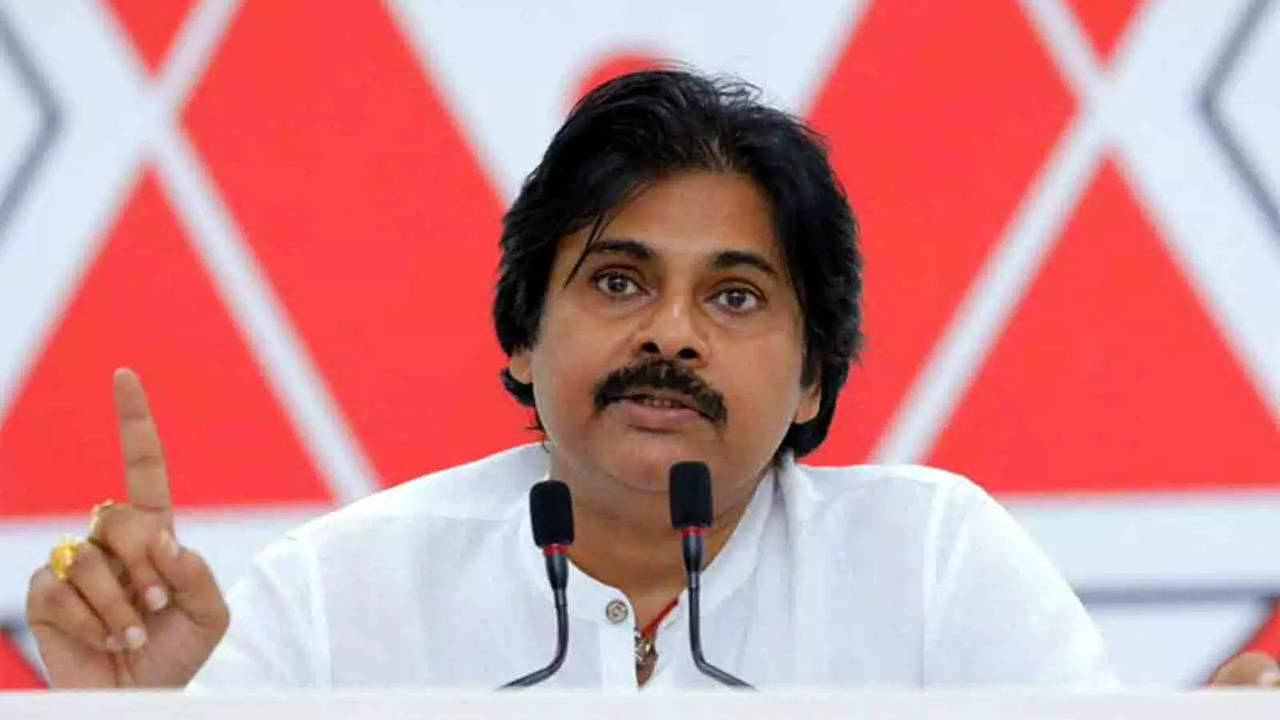Pawan Kalyan, an actor and the founder of the Jana Sena, is currently leading opponents in the Pithapuram Assembly constituency in Andhra Pradesh. His opponent is Vanga Geetha Viswanatham, a member of the YSRCP, which is led by Jagan Mohan Reddy.
As a result of his big leads in the Pithapuram Assembly constituency in Andhra Pradesh, actor and Jana Sena founder Pawan Kalyan is on the verge of achieving his first electoral victory. A candidate named Vanga Geetha Viswanatham, who is affiliated with Jagan Mohan Reddy’s Yuvajana Sramika Rythu Congress Party (YSRCP), is running against Kalyan.
Pawan Kalyan has decided to associate himself with the Bharatiya Janata Party (BJP) and the Telugu Desam Party (TDP) for the upcoming elections for the Lok Sabha and the Andhra Pradesh Assembly. A seat-sharing agreement between the parties of the National Democratic Alliance (NDA) resulted in the TDP being given 144 Assembly and 17 Lok Sabha constituencies, while the BJP was given six Lok Sabha and ten Assembly seats to compete for. In accordance with the agreement, the Jana Sena ran for two seats in the Lok Sabha and twenty-one seats in the Assembly.
Taking the lead role in Pithapuram is Pawan Kalyan; who is he?

In the states of Andhra Pradesh and Telangana, Pawan Kalyan, who is 55 years old, is a well-known politician because of his Telugu acting career. The actor, who is the brother of Telugu stars Chiranjeevi and Nagendra Babu, is well-known for his martial arts and has appeared in a number of films. Some of the films he has appeared in include Gokulamlo Seeta (1997), Suswagatham (1998), Thammudu (1999), Kushi (2001), Balu (2005), Jalsa (2008), Gabbar Singh (2012), Attarintiki Daredi (2013), Gopala Gopala (2015), and Vakeel Saab (2021), to name a few.
For the first time in 2008, he entered the political arena and became the leader of the Yuvarajyam youth wing of the Praja Rajyam Party. As the leader of the party that his brother Chiranjeevi had founded, he was given the position of president. Despite the fact that Kalyan put in a lot of effort to campaign for the party, the party ultimately decided to put a stop to Kalyan’s political career due to a number of health issues and other factors. In the year 2014, he rose to prominence once more, and this time he established a new political party that he dubbed the Jana Sena Party (JSP).
Recovering from the Defeat
2019 was the year when Pawan Kalyan ran for office for the first time, and he was received with a great deal of dissatisfaction. Although he ran for office in the Gajuwaka and Bhimavaram constituencies, the JSP chief was unsuccessful in both of them. T Nagireddy, the head of the YSRCP, defeated Kalyan in the Gajuwaka seat by a margin of more than 16,000 votes. In Bhimavaram, he was defeated by Grandhi Srinivas of the YSRCP after receiving more than 8,000 votes.
The Political Guarantees Made by Pawan Kalyan:

A joint election manifesto was released on April 30 by Pawan Kalyan’s Jana Sena Party (JSP) and N Chandrababu Naidu’s Telugu Desam Party (TDP). The manifesto included a number of commitments between the two parties. Each party made a commitment to provide a number of amenities for women. Women between the ages of 18 and 59 are eligible for “free bus travel and monthly financial assistance of Rs 1,500 from the government.”Among the many things that they promised in their manifesto, they pledged that every home would receive three free gas cylinders per year and that they would provide an unemployment stipend of Rs 3,000 per month. In addition, they have pledged to provide Rs 15,000 to each and every student who is enrolled in school under their ‘Thalliki Vandhanam’ program plan. Taking into consideration that Pithapuram is a constituency that is predominantly agricultural, the two parties have also developed a number of initiatives that are advantageous for the farmers.If the coalition is successful in gaining power, it will provide farmers with a payment of Rs 20,000 per year as a kind of financial support, nine hours of uninterrupted power supply for farmers, and solar pump sets that are provided at no cost to the farmers.
